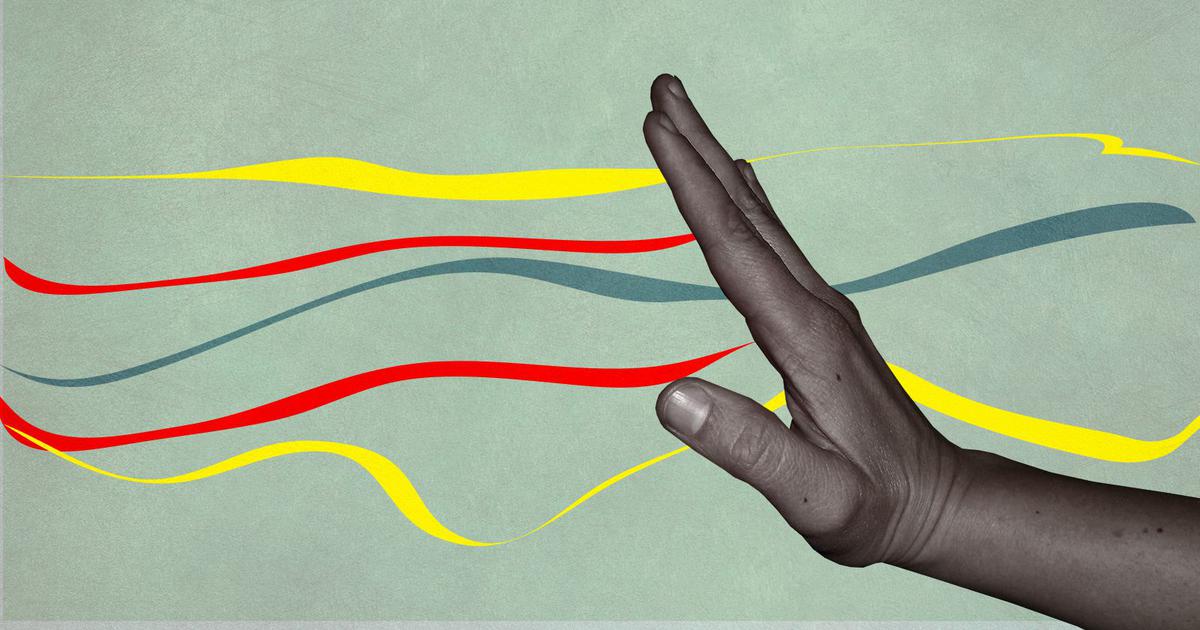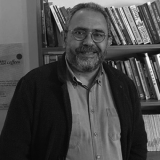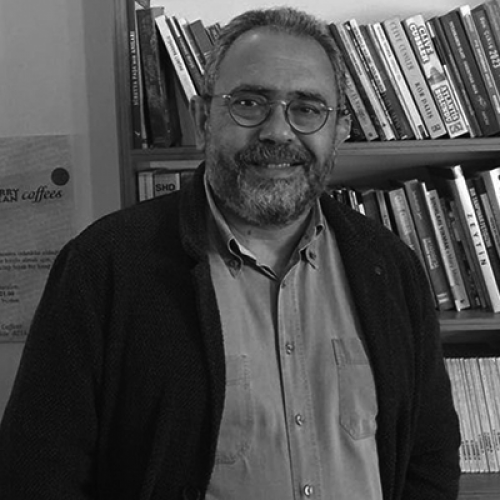Symptoms of ‘Power Reflux’ in Turkey (II)

Well, to the extent that it can still be called a democracy, the Turkish political system appears to suffer from a, what I call, for want of a better term, a ‘power reflux.’
Against the background of the admittedly sketchy and somewhat idealized depiction of a ‘healthy and functional democracy,’ in the first part of this article, let us now return to the question I asked in the beginning:
What is exactly unhealthy and dysfunctional about the Turkish democracy?
Well, to the extent that it can still be called a democracy, the Turkish political system appears to suffer from a, what I call, for want of a better term, a ‘power reflux.’ What I mean by that is a situation, in which political power flows not from bottom up, but from top down. A situation, in other words, where it is not bundles of public opinion freely formed in an unrestrained public sphere, which guides governmental policy; but it is the government, which, with the help of a partisan media, a non-independent judiciary and a loyal police force, seeks to shape the public opinion in favor of its policies and against its critics.
To put it bluntly, the so-called Turkish “democracy” shows an increasingly worrying resemblance to a political system, where it is not what the common citizens think that guides what the government does; but it is the government which determines what the common citizens are supposed to think and allowed to say in public.
Now, such power refluxes, if taken to systemic extremes, would land a society in the grim wasteland of totalitarianism. Granted, the Turkish society is still not there, but Civil Pages’ and Observatory’s recently released reports present ample evidence, that the reason for that is not a lack of trying on the part of the Turkish government. In fact, the picture that emerges from both reports is that of a government which actively, systematically and aggressively seeks to predispose the public opinion against those individuals, groups or organizations, whose political views and/or actions it perceives as threats to its authority in wielding administrative power.
The government gives every impression of an ‘equal opportunity oppressor,’ who does not discriminate among non-supporters. Yet, when it comes to cracking down on them, from Observatory’s report we gather, that it is slightly more partial to triggering public vilification campaigns against certain groups such as Kurdish politicians and civil society actors working in the Kurdish regions of the country, LGBTİ+ and feminist women’s organizations, environmental activists and human rights defenders – particularly those focusing on most serious human rights violations like torture and police abuse.
Public discrediting, stigmatization, criminalization, judicial harassment through criminal investigations and prosecutions on bogus charges, prolonged detentions and non-compliance with European Court of Human Rights (ECtHR) rulings appear to be the practical tools of choice, which the government uses to turn the public opinion against a diverse group of actors. Among these actors are opposition politicians, prominent civil society professionals, human rights defenders, journalists, lawyers, academics and numerous others, whose most perceptible commonality appears to be publicly professing political views and opinions, which are not deemed sufficiently respectful of the president, supportive of his government and/or aligned with its policies.
By presenting this diverse group of political and civil society actors variously as ‘terrorists’, ‘terrorism supporters,’ ‘agents or operatives financed by Turkey’s foreign enemies’, ‘coup plotters’ or, in the case of feminist and LGBTİ+ groups, as ‘perverts or deviants trying to undermine the so called native and national values of the Turkish family,’ the government not only stifles and excludes their critical voices from the public opinion and will formation processes, but also intimidates others from expressing similar critical opinions within the earshot of those citizens, who form its popular support base.
The above mentioned practical tools function to hammer out a heavily restricted public sphere, which filters out critical voices. The combined chilling effect that the concerted use of these tools create comes in handy, also, in forging a severely controlled civic space. This, at least, is what we gather from the evidence presented in the Civil Pages’ report, where the interviewees (mostly civil society professionals) complain about the difficulty in retaining qualified personnel in civil society organizations – because in the face of the “criminal charges brought against human rights advocates and civil society professionals in such [high profile] court cases as the Büyükada or Gezi trials … most NGO professionals do not feel safe and NGO jobs are deemed to be rather risky” (pp. 9-10). According to the Civil Pages’ report, civil society professionals also share the opinion that “the increasing political pressure put on civil society organizations and the climate of fear it generates” is “the first and foremost external factor,” which explains “the current state of inactivity on the part of civil society organizations” (p.10).
[To read more on the above mentioned Büyükada or Gezi trials please click here.]
The combined chilling effect generated by the public vilification campaigns against “government non-supporters” does not, however, appear to be merely an incidental side-effect, which claims civil society organizations and actors as ‘collateral damages’ in government’s otherwise targeted crack-down on political actors and the plotters of the July 2016 coup attempt. On the contrary, in both Civil Pages’ and Observatory’s reports, we find evidence of a government, which is not only markedly uninterested in and oftentimes positively resistant to consulting with civil society organizations in its policy and decision-making processes, but also actively discourages civil society organizations from performing their monitoring and scrutinizing functions. The evidence also identifies a government expecting them instead to work exclusively as voluntary, charitable organizations, complementing but not contradicting governmental policies.
To discipline the civil society organizations to remain within the bounds of its rather limited expectations from them, the government seems to pursue what can only be described as a ‘carrot and stick strategy:’ The carrots dangled in front of the civil society organizations — in other words, the awards they can hope to collect as long as they behave and do not cross the government, appear to be twofold:
First there are the public funds, which the government distributes among civil society organizations entirely at its own discretion through non-transparent processes.
And second there are also the occasional invitations to consultation meetings with governmental and public administrative officials, which, according to the evidence of Observatory’s report are organized more often than not as “box-ticking exercises” (p.43) to keep up appearances, mostly against foreign partners.
If access to public funds and consultation meetings with government officials are the carrots dangled in front of the civil society organizations, there are also quite a few sticks, which threaten to hit them if they don’t stay in line. These include frequent and painstaking financial and administrative audits by public officials, liberally issued administrative fines, and a recently introduced legislation, which not only increases the upper limits of the said administrative fines to prohibitive levels, but also authorizes the minister of interior to suspend the staff, executives and even the activities of the civil society organizations.
In addition to this carrot and stick strategy, which the government appears to use to keep independent civil society organizations in line, Observatory’s report also presents evidence of a government, which encourages ‘well-behaving’ civil society organizations to spread “alternative human rights narratives, which are allegedly based on the ‘traditional values of the society in Turkey,’ but which in fact ignore serious human rights issues on the ground as well as the underlying institutional deficiencies” (p. 47). This means that the government is not only attempting to filter out critical voices and opinions from the public opinion and will formation processes, but it also tries to fill the void left by their absence, by using ‘well-behaving’ civil society organizations as unsuspecting and seemingly independent mouthpieces to feed governmentally endorsed views and opinions into those processes.
All of these suggest that the Turkish government is out to forge not only a heavily restricted public sphere, but also a severely controlled civic space; so that the ultimate court of the public opinion remains under the threatening gaze and controlling actions of a ‘big brother’ wannabe state administration.
This is a clear case of a power reflux, if there is ever one — a case, in other words, where the government actively, aggressively and systematically attempts to reverse the democratic flow of power. It does so not merely to avoid the censure of the public opinion, but also to shape, frame, and indeed construct the public opinion; so as to continue to claim a semblance of democratic legitimacy in wielding the administrative power of the state.
To read the next part of this article please click here to turn the page.


Bizi Takip Edin